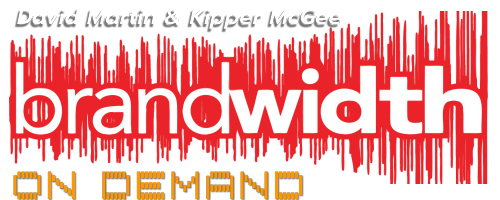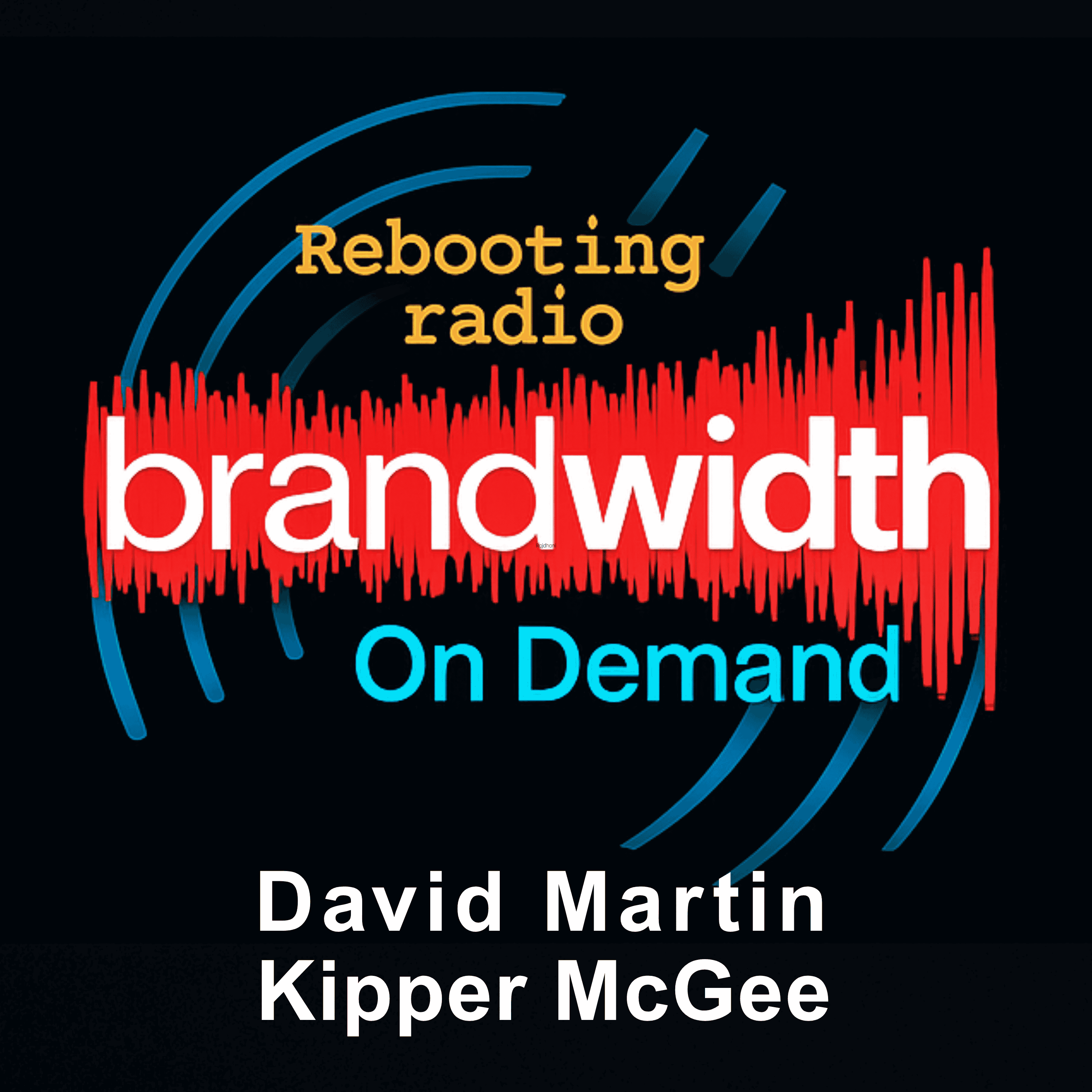Episode 162
Adventures of a Voice-Over Guru - Guest: Lesley Bailey
Who in radio DOESN'T want to earn more income? One way for professional announcers is to use your voice.
Lesley Bailey is an award-winning Casting Director, Voiceover Coach, Demo Producer, and Consultant who comes as a highly recommended Voice-Over coach in the inner circles of the industry.
Now as head of VOICEOVER GURUS, Lesley helps voice actors bring out the magic while casting voice sessions for brands like AT&T, BMW, Dove, McDonald's, Verizon, Dunkin Donuts, and more.
In this episode, Leslie provides basics that may not be obvious to radio talent, while offering those little "tricks" of the trade that she has gathered after two decades of working with the best producers, directors, writers, agents, and talent in the business.
If you’re looking to enhance your portfolio of income streams or wanting to coach those who do, we’ve got ONE solution!
Key Takeaways
[02:09] For radio hosts, Voice-Over work is NOT the same as doing commercials at your station. Leslie shares the FIRST THING someone working in radio needs to know before trying to approach a major agency or brand. These tips may surprise you.
[03:56] When a casting person like Leslie is looking for ‘the right’ voice talent, she reveals just what she’s looking for and explains exactly how a RADIO PERSON should package themselves to make the right impression on decision-makers.
[05:31] We learn WHAT’S WORKING WITH DEMOS right now, as Leslie illustrates whether agencies want to hear complete spots, a quick-cuts montage, or something else.
[07:19] There are lots of places where voice-over talent is needed that we may never even think of, but one hot area right now seems to be audiobooks. We learn how a voice-talent can prepare for reading books as opposed to spots…and how to they break into that field.
[10:20] Leslie answers a key question: “Does a voice-over artist need an agent to get noticed?”
Read One Minute Martinizing by David Martin
Please help us thank these supporters
who help keep BRANDwidth On Demand free!
Get the FREE BRANDwidth newsletter
Transcript
[00:00:10] VO: Welcome to BRANDwidth on Demand, your guide to rebooting radio.
[:[00:00:30] VO: BRANDwidth on Demand, rebooting radio with a different take on all radio can be. Now, your guides through the MediaMorphosis, David Martin and author of the book BRANDwidth, media branding, coach Kipper McGee.
[:[00:01:40] Leslie: Hey, listen. I am a little nervous to speak after that beautiful voice. Yeah, thank you for the intro.
[:[00:02:08] Leslie: The first thing is actually figuring out how to transfer those skills. To the voiceover realm, much like a theater actor or a sports announcer. There's a performance there, there's a projection, there's a preparedness. And in voiceover, for the most part, you want to offset all of that and sound like you're completely off the.
[:[00:02:49] And so the second it comes out. It's crazy. So, yeah, that's where training comes in. Right? Kind of like the ballet dancer who keeps saying. Smacked on the shoulders, by the instructor, you know, [00:03:00] lower your shoulders, stop scrunching your shoulders. It's just getting reminded of those bad habits and recreating new ones.
[:[00:03:25] What does that script want of you? What's the specific emotions of that screen? You're really auditioning for the writer, you know, is that writer thinking comedically? Was he thinking warm and fuzzy? Was he thinking confident and bad-ass and doing what that writer wants? And so it really is acting right.
[:[00:03:56] Dave: Well, honestly, when a casting person like yourself is [00:04:00] looking for the right boys talent, what are you looking for? I mean, how exactly should a radio person package themselves to make the right impression?
[:[00:04:23] If you're a really like strong, deep, masculine voice. Okay. Maybe you can do that, like monster truck commercial. Um, if you've got like this higher feminine voice, so maybe you're going to do the baby shampoo thing and not to make it that generic because that's again, then where acting comes in. So if you don't have a voice, that's that distinctive, it means you can kind of do anything if you have those acting instincts, because if they're looking for a certain emotion and you can go with it.
[:[00:05:22] So, I don't know if those references make sense to people, but you know, are you going to be really broad? Are you going to be like, I do this one thing, but I do it really well.
[:[00:05:42] Or is everything kind of done on spec custom for the particular role or being cast?
[:[00:06:06] So if you want to go after commercial work, you have a commercial demo. If you want to go after corporate narration work, you have a corporate narration demo and so on, it gets kind of expensive. And then. The other thing is yes, you will also maybe then get auditions from these ways that you're going after auditions.
[:[00:06:34] Kipper: If I'm hearing you, right. It sounds like the demo should be more quick cuts rather than complete commercial.
[:[00:07:17] Dave: No, that's a great point, Leslie, you know, there's a lot of voiceover talent seems to be needed in things like audio books right now. So how does a boy's talent prepare for reading books as opposed to doing commercials?
[:[00:08:09] Kipper: Yeah... So how do people break into that field these days, specifically?
[:[00:09:07] Kipper: Well, that's kind of what we're looking at here is, you know, radio with the kind of a rampant number of people who are out of work or finding themselves cut back or whatever we're looking for people. that want to supplement their income or perhaps even replace it at some point because they have got the town, they got the chops. They just don't have the gigs.
[:[00:10:20] Kipper: So you mentioned that you don't really need like an agent for the audiobook realm. What about doing bigger commercials? Even regional ads are worthwhile to get an agent, or is it something that can contact and build upon friends? Is there a coconut grapevine that says, Hey, you got to use so-and-so or how does that work?
[:[00:11:15] They're going to wake up every morning and find auditions in their inbox. I have some students who go through an entire, a to Z list just a little bit every day and cold call production companies and direct market. His demo, you know, like, or her demo, like, hi, I have a demo. Is there anyone specific? You know, that's in charge of listening to things like this and would be willing to review mine.
[:[00:11:52] Dave: Voiceover guru, Leslie Bailey. Hey, somebody you'd like to hear from we'd love to hear your suggestions, [00:12:00] email us show@brandwidthondemand.com, and please spread the word about the brand on demand.
[:[00:12:12] Kipper: And now a whole new way to keep up with what's happening in our ever-changing, ever-evolving industry and the multi-channel media mega verse we're becoming just follow a brand with plus that's brand with P L U S brand lift plus I'm Twitter, Facebook, Instagram, or LinkedIn. At BRANDwidthPLUS you'll find we're pretty social and hope you are two
[:[00:12:51] Opportunities hiding in plain sight: BRANDwidth on Demand
[:[00:13:04] Leslie: I think going back to my earlier mention. I think for radio people, medical, narration, on-hold messaging, there's another huge field, which is called e-learning and education videos, you know, training videos, things like that.
[:[00:13:41] Okay. But I'm going to find that perfect one. As soon as we're done the one really hiding under my bed. I think you might've asked something like this earlier, but it was a multi-faceted question. So I didn't finish the thought, you know, just talking again about the conversational aspect that is so [00:14:00] popular these days and has really edged out that announcery sounds that a lot of us grew up. I think, you know, just talking about strategy, it goes back to the idea of how we talk to one person only, which is how we talk almost all day long, except, well, I guess for you radio people, but yeah, that is recognizing your volume, your pacing, the way you articulate or don't articulate when you talk to one person it's, it's a much more relaxed sound, and, and these are the things when I just throw a script at somebody again, it's like muscle memory training, I'll just say, oh, you said those words, so perfect. And that didn't sound natural. Right. And just reminding them over and over just being there blind.
[:[00:15:03] They are not as "announcer-y"
[:[00:15:37] Leslie: So true. And I have my own personal coach, my 14-year-old child who constantly reminds me, especially on calls like this. Mom...the microphone is right there. You don't need to shout. I'm like, oh, I forgot. Like they can hear me through the microphone. It's my new Yorker voice kicking in. Yeah, [00:16:00] exactly. And it's, it's off-putting. Right. And it's one of the number one things I tip my students off to in the beginning. Do you want to stand out above everyone else? As long as it's not an energetic spot that you're doing just lower your voice a slight bit more than you think you should, because now it sounds like you're just talking to them and it's like this great secret that you have to share. And they're going to really lean in and be like, oh, this is for. Yeah, and that is really attractive in voiceover.
[:[00:16:48] Kipper: as always our special thanks to the stunningly skillful editing of our exact producer, Cindy Huber.
[:[00:17:05] John: This is John Sebastian. If you want to know the secrets behind the success we've had with the WOW Factor here in Phoenix, tune in to the next BRANDwidth on Demand
[:[00:17:24] Kipper: And I'm Kipper McGee may all your BRANDwidth be wide!




